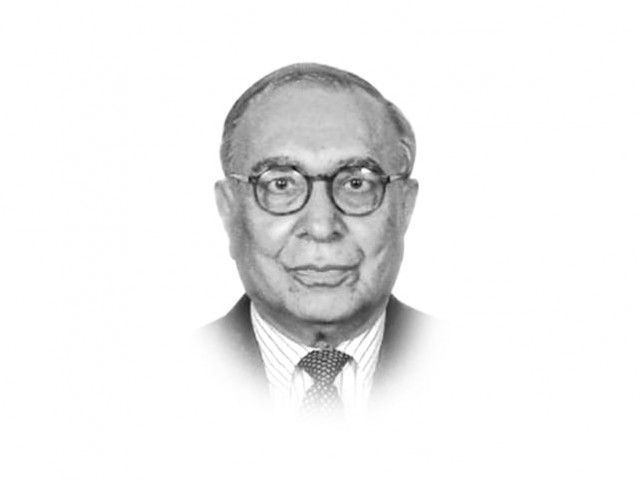Storm clouds over the Gulf
Some Western analysts argue that the United States is already at ‘war’ with Tehran.

Storm clouds over the Gulf
Sanctions have steadily climbed a ladder of escalation and Iran has struggled to offset their impact. A whole cluster of factors makes the current situation particularly dangerous. One, the European Union that collectively buys 450,000 barrels of Iranian oil per day is reported to have decided in principle to impose an embargo on this vital trade with Tehran and has thus moved closer to the American position hardened by the dynamics of the American presidential election. Iran has dubbed it as an ‘economic war’. Two, the stakes for the ruling elite in Tehran are higher because of the elections to the Iranian Majlis in early March. Three, tension between Iran and the Arab states of the Gulf is getting exacerbated by major American arms sales to the latter — worth $ 30 billion and $ 11 billion respectively, with Saudi Arabia (accent on F-15 aircraft) and Iraq — avowedly designed to enhance regional deterrence against possible Iranian reprisals.
Brinkmanship invariably entails the risk of a tipping point when one side or the other loses control. Apart from the provocative oil boycott, Barack Obama, in a huge policy shift, has signed legislation that can sanction institutions dealing with Iran’s Central Bank. Iran threatened to choke off the Strait of Hormuz through which, on an average, 15 Supertankers transit daily and which is the conduit for 17 million barrels of oil a day, destined mostly for Japan, China and India. Washington considers any such interference as intolerable. Tehran tested a number of missiles including a cruise missile with a range of 200 kms. The Arab neighbours saw in this missile a specific threat to them, as most of them host American military facilities. Iran’s Naval chief, Admiral Habibollah Sayyari has since stated that Iran has no intention of closing the Strait. But its army chief, Ataollah Salehi, has simultaneously ‘advised’ the US publicly not to redeploy, in the Gulf, the aircraft carrier USS John C Stennis that has just sailed from it into the Gulf of Oman. There is nervousness in the oil markets and turbulence in Tehran’s money bazar.
Tehran cannot offer any significant new terms in negotiations on its nuclear programme if the West continues to seek a regime change. Iraq has also added new dimensions to its problems with the United States. Washington failed to get Baghdad’s agreement for quasi-permanent bases for its military leaving a gap in its deployment in the region. Prime Minister Nouri Al-Maliki’s perceived pursuit of Shiite regional dominance and the pro-Iranian militias in Iraq make it easy to paint Iran as a regional bogeyman. This is good news for Western arms manufacturers but not for regional stability.
In Iran, the reformist zeal of the Khatemi era has waned. In March, the real contest would be between conservative factions. In fact, the representative status of the Majlis would suffer if the call for a polls boycott made by two former presidential candidates, Mir Hussein Moussavi and Mehdi Karroubi, seriously affects the voter turnout. In this polarised environment, Iran would be reluctant to make any substantive concessions to the West, especially as the American politicians compete in anti-Iran rhetoric during this election year. Future scenarios may, therefore, include conflict, strained Arab-Iranian relations, impediments in intra-regional trade and repercussions for the supply and price of oil. Pakistan will watch the unfolding events with great concern. Even a short term crisis can impact most adversely on its economy. Nor does the projection of differences in the region in sectarian terms serve the cause of its internal harmony. This we know only too well from our past experience of Arab-Iranian rivalry.
Published in The Express Tribune, January 9th, 2012.














COMMENTS
Comments are moderated and generally will be posted if they are on-topic and not abusive.
For more information, please see our Comments FAQ